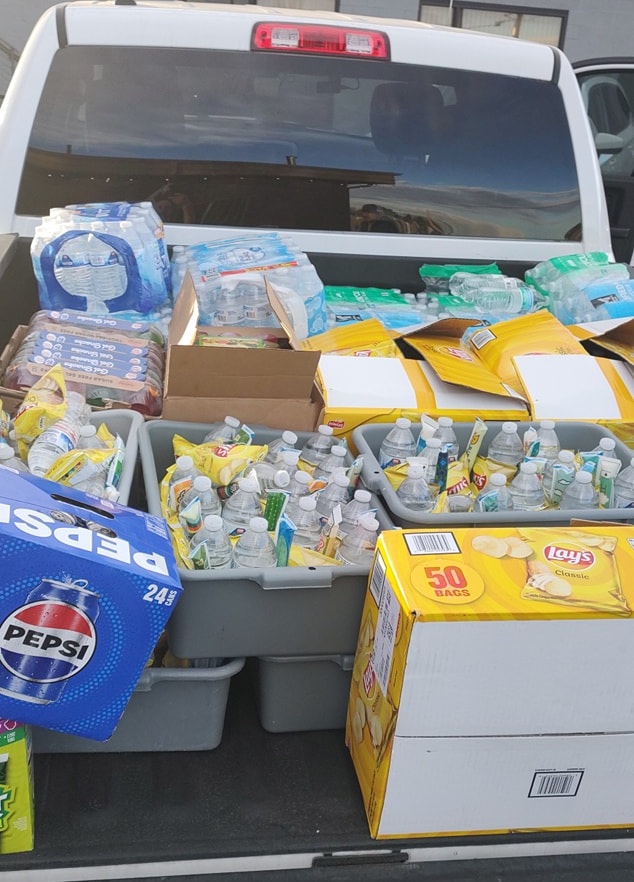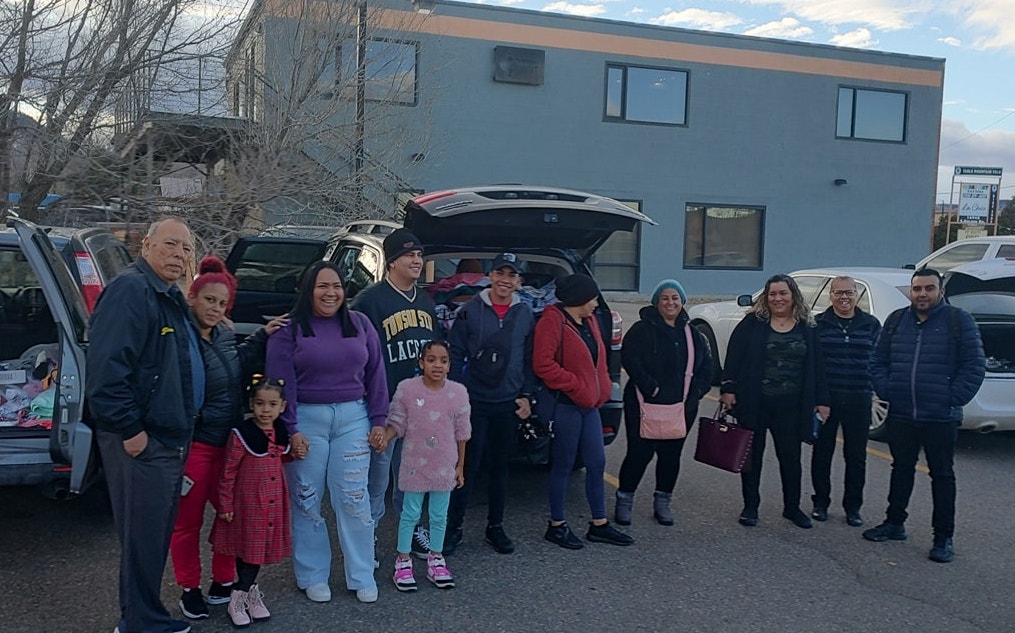The entrance to the Highlands — where I-25 meets Speer — is dotted with luxury apartments, chic restaurants, and a growing tent city of Venezuelan migrants.
In the last year, nearly 30,000 Venezuelan migrants have arrived in Denver, many of whom are utilizing services provided by city programs. The city provides temporary housing for migrant families at several locations including the Quality Inn on West 27th Avenue, but the shelter is only a temporary solution as single tenants are only given 14 days before being evicted from their hotel rooms; until recently, families with children were given 37 days to stay in the shelter, but have now been exempted from timing out of the shelter.
On 27th Avenue, between the Shell gas station and the Quality Inn, the sidewalk is lined with tents.
I took a trip down to the camp last week to see how families evicted from their shelters were doing. As I crossed the street I had to stop and let a white Mercedes Benz pull out of its parking garage, inching between teenagers on bikes and a crowd of people forming around a truck handing out food and supplies.
A man standing in the truck bed handed out bags of Lays chips, water bottles, and yogurt for the children, while another woman passed around burritos and cans of Pepsi for adults.

After helping pass out some of the food packets, I tracked down one of the organizers of the event. Isabel Canas was on the go, grabbing boxes of cupcakes and racks of Pepsi and directing the different people helping, her voice hoarse from a long day of cooking and passing out food.
Canas owns Las Palmas I, a Mexican restaurant in Golden, and said that it was her employees’ idea to gather the resources and people to distribute food to the migrants.
“If we all just pitch in $20 to $30, we can feed all these people,” said Canas. “And we fed everyone today.”
Customers, employees, and other community members donated beans and tortillas which enabled Canas and her team to make over 360 burritos and hundreds of bundles of food.
The camp itself felt communal, its residents lining up in a neat line to get food and asking Canas and other volunteers whom the food was for. Several migrants came up to me while passing out the packets for the children, to which I would say “para niños,” (in what I’m sure was nearly unintelligible Spanish) and several cracked jokes while making expansive gestures. “Tengo muchos hijos” (I have many children), a couple single men said with a smile as they tested whether, they too, could grab a cupcake.
Roughly a third of the people grabbing food were young children, most wearing gloves as they adjusted to the colder Colorado weather.

Canas dismissed her own role in planning the event, saying that it cost her less than $100 and most of the resources were driven by employees and volunteers. Even so, her restaurant provided a focal point for people to gather — and all the food was prepared in her kitchen and transported to the migrant camp.
When asked about her experience of the evening, Canas sounded proud of the effort, but did not dismiss the reality of the dire situation most of the migrants continue to face.
“They really want to work. … People were asking us for work, but we didn’t have any jobs for them,” said Canas. “You can’t fix everything.”
Canas’ team also handed out clothes and shoes for migrants; and looking at the people they served, many were equipped with gloves and coats that other community members or organizations had donated.
Thousands of predominantly Venezuelan migrants continue to flock to Denver, many by one-way bus tickets, like the group of 40 to 50 migrants that arrived in front of the capitol after Texas officials contracted several bus companies to send migrants to more liberal states.
For many of the migrants, working legally is a distant dream — especially when the federal application requires computer access costs $545 and the monthly minimum wage in Venezuela sits around $6 a month.
With no end in sight to the ongoing political and economic crisis in Venezuela, and the influx of people seeking a better life, acts of kindness like Canas’ and her team’s food donations become even more vital to improving the lives of all our neighbors in Denver. With the city’s resources stretched across four shelters, a meal or a winter coat can always find a place among the migrants that continue to arrive in the city.
Other community members have created signup lists for volunteers to contribute supplies and food to the camps. If you would like to learn more about helping Venezuelan migrants in Denver you can read about local efforts here:
Migrant Support: How to Get Involved
The Facebook for Isabel Canas’ restaurant, Las Palmas I, can be found here.




